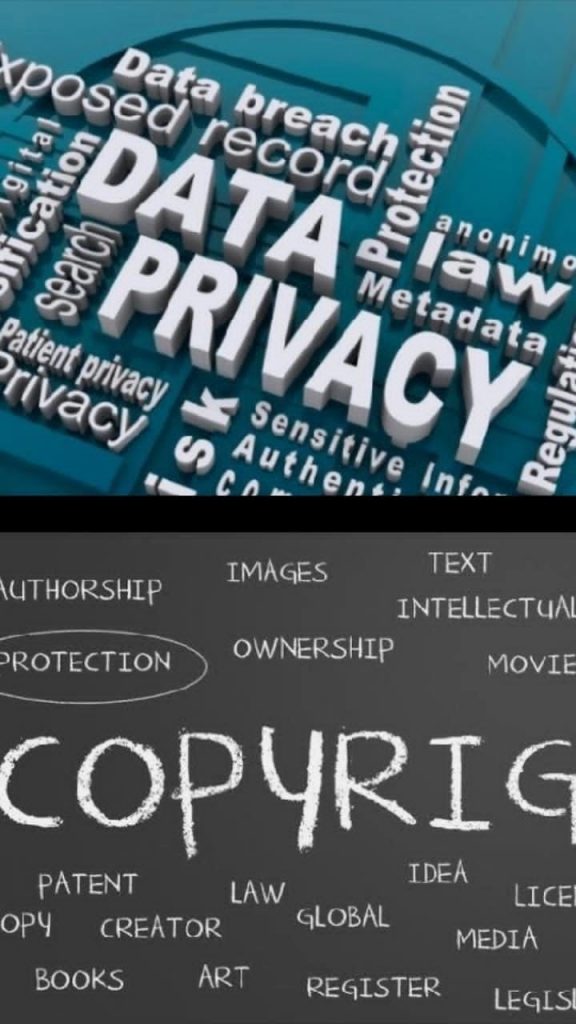Emerging technologies have gained enormous recognition in Nigeria. Thus, this article uncovers the privacy and copyright laws regulating them.
Foremost, Emerging technologies can be defined as ” those technical innovations which represent progressive developments within a field for competitive advantage“. These technologies include fintech , information technology, nanotechnology, biotechnology, robotics, and artificial intelligence, block chain, cloud technology e.t.c
Consequently, this article discusses two crucial laws regulating these technologies in the process of legal service delivery to ensure orderliness, privacy, safety and justice. These laws include:
1. PRIVACY LAWS IN NIGERIA- Firstly, The Nigerian Constitution 1999 (as ammended) provides Nigerian citizens with a fundamental right to privacy. Section 37 of the Constitution guarantees privacy protections to citizens in their homes, correspondence, telephone conversations and telegraphic communications. Furthermore, the National Information Technology Development Agency (NITDA) issued the Nigeria Data protection Regulation (NDPR). It is the principal regulation for data protection in Nigeria.
Secondly,The Consumer Protection Framework 2016 was enacted pursuant to the Central Bank of Nigeria Act 2007. The Framework includes provisions that prohibit financial institutions from disclosing customers personal information. The Framework further requires that financial institutions have appropriate data protection measures and staff training programs in place to prevent unauthorized access, alteration, disclosure, accidental loss or destruction of customer data. Financial services providers must obtain written consent from consumers before personal data is shared with a third party or used for promotional offers.[1]
Cybercrimes (Prohibition, Prevention Etc) Act 2015 provides a legal and regulatory framework that prohibits, prevents, detects, prosecutes and punishes cybercrimes in Nigeria. The Act requires financial institutions to retain and protect data and criminalizes the interception of electronic communications.[2]
Freedom of Information Act, 2011 (FOI Act)-The FOI Act seeks to protect personal privacy. Section 14 of the FOI Act provides that a public institution is obliged to deny an application for information that contains personal information unless the individual involved consents to the disclosure, or where such information is publicly available. Section 16 of the FOI Act provides that a public institution may deny an application for disclosure of information that is subject to various forms of professional privilege conferred by law (such as lawyer-client privilege, and health workers-client privilege [3].
These laws can be applicable for fintech technologies, blockchain technologies, cloud technologies, artificial intelligence, and internet of things.
2. COPYRIGHT LAW IN NIGERIA- The Copyright Act LFN 2004 is the principal law that governs and protects copyrights in Nigeria. It makes provisions for the protection, transfer, infringement, and remedies for infringement of copyrights in Nigeria.[4] Moreso, Nigerian Copyright Commission is statutorily responsible for all matters affecting copyright in Nigeria. Its powers include the appointment of officers responsible for monitoring, reporting, or enforcement of the provisions of the Act.[5]
Consequently, the copyright law is applicable to emerging technologies like Internet of Things, Artificial Intelligence, websites, and computer softwares.
Ultimately, the privacy and copyright laws are crucial for legal matters associated with emerging technologies for maximum privacy and safety, orderliness and justice for individuals and companies in the tech sector.
Did you find this article helpful? Let us know in the comments section, like and share
References
1. DLA Piper, (2022, December, 23). Data Protection laws of the world: Nigeria. DLA Piper.http://www.dlapiperdataprotection.com
2. DLA Piper, (2022, December, 23). Data Protection laws of theworld: Nigeria. DLA Piper. http://www.dlapiperdataprotection.com
3. DLA Piper, (2022, December, 23). Data Protection laws of theworld: Nigeria. DLA Piper.http://www.dlapiperdataprotection.com
4. Jegede, O. Idiaru, W. (2020, September, 9) Nigeria: Overview of copyright law and copyright registration in Nigeria. Mondaq. http://www.mondaq.com
5. O. Ibidapo-obe,T. (2022, October, 18th) copyright laws and regulations in Nigeria 2023. ICLG. http://www.iclg.com

